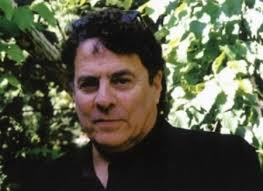Full disclosure: I wrote this review, not entirely without bias.
The truth is: I am quite biased in favor of the author, Rabbi John Moscowitz, rabbi emeritus of Toronto’s Holy Blossom Temple.
John and I met, almost 42 years ago, as we both started rabbinical studies at Hebrew Union College-Jewish Institute of Religion in Jerusalem.
John is one of my closest friends, confidants, and mentors — and I’d like to think that he returns the compliment.
A fuller disclosure: to read John’s collection of sermons and small essays, Evolution of an Unorthodox Rabbi with its overarching autobiographical themes, is not simply to encounter the intellectual and spiritual fruits of almost four decades of pulpit activity.
It is, in a large sense, to look in the mirror – and to see my own evolution as well.
John is a few years older than me, but in many ways, our life journeys are almost parallel.
We are both, religiously speaking, baalei teshuvah — returnees to a tradition that our grandparents would have abandoned and that our parents only partly or begrudgingly accepted.
That act of partial return, by the way, would have typified the life journeys of many of our fellow rabbinical school students.
There is yet a second way that John’s life mirrors my own — and that is our joint apprenticeship with the Left.
This is where John’s three year seniority over me makes a difference; he got to really live the life that I could have only fantasized — actually hanging out with Tom Hayden and Jane Fonda.
With that apprenticeship comes the second parallel: yes, the embrace of traditional Judaism (John, I think, even more than me), coupled with the gradual, painful, disillusionment with the Left.
Despite the fact that we were both still liberals, we had come to two similar conclusions about the hard Left (to be clear: as opposed to liberalism).
First: the hard Left was hardly always right.
Second, the hard Left had been waging a never-ending intellectual war against Israel.
Both of us refused to be part of that war.
Quite the opposite; if there was a war to be fought, it would be for Israel’s legitimacy; of giving Israel the benefit of the doubt; and of refusing to engage in moral equivalency between Israel and her enemies.
Example: a sermon, in which John ponders the question: When we name Jewish victims of terror and say kaddish for them at worship services, should we also name and say kaddish for innocent Arab victims?
Let us say unequivocally: Palestinian lives are worth every bit as much as Jewish lives; their deaths are as much a dent in God’s image as are Jewish deaths. However, when the survival of our homeland is at stake, when our people are in peril, we will put ourselves first. Therefore, when we say Kaddish here in synagogue, while we value the lost lives of all innocents, we shall mention the Jewish innocents in this horrible mess alone.
But, finally, the great gift of John Moscowitz is his ability, that I share and admire, to abandon previously held positions — even and especially when it means moving from a more conservative to a liberal position.
The most profound example? John’s evolving position on same-sex marriage.
…As the years went by, more and more I felt like the guardian at the gate saying no entry, no way, even as the gates no longer held and had been broken through.
The only thing worse than having to change is becoming irrelevant. As the winds of powerful and positive change swept past me, I felt not only irrelevant but wrong, at least in some of my stances….too much no, too much posturing and policing; not enough yes and welcoming and affirmation.
I could have written those words. In fact, I have said them – at least, in their essence.
The late Rabbi Harold Schulweis, whom both John and I deeply admired, once said something along these lines. Judaism believes in polarities. Judaism is a pendulum, that keeps swinging from left to right, and from right to left.
In Rabbi Schulweis’ words:
Any attempt to freeze the pendulum is to tamper with the vitality and sweep of our religious civilization…Our minimal task is to provide vehicles to keep the pendulum swinging, to keep the polarities from polarization, to keep opposite views in contact with each other.
John and I have been riding that pendulum, together, for several decades.
That back and forth movement has not resulted in motion sickness.
Rather, it has offered me an invigorating friendship that, I pray, will continue for many decades more.






